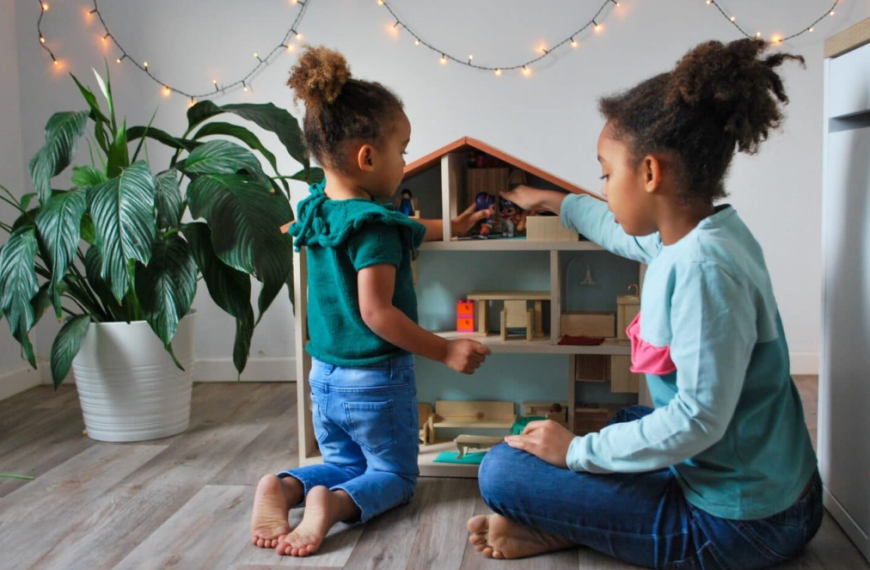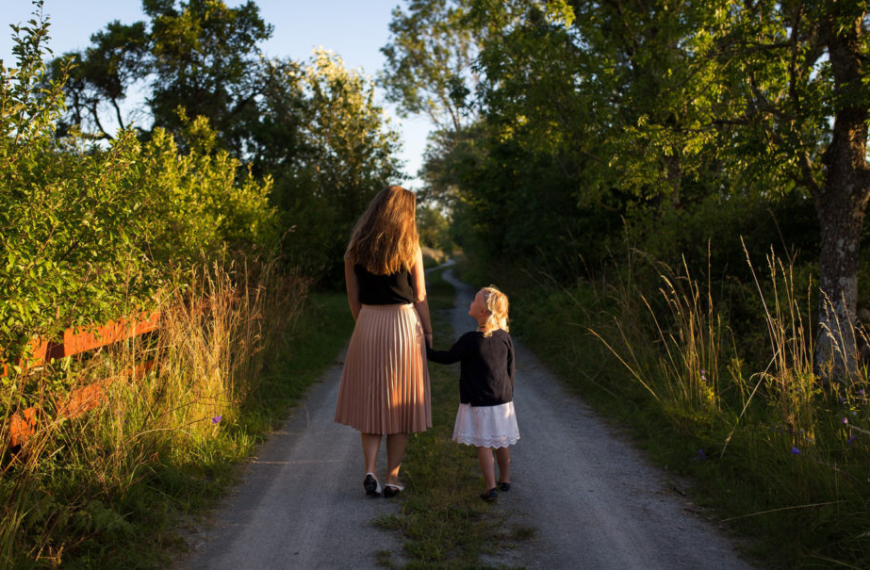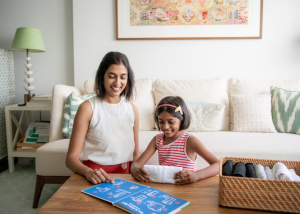Mindful parenting might be for you if you want to be calmer with your kids and parent them with understanding. We’ll talk about why it’s helpful, how to do it, and share examples.
Mindfulness and parenting are closely connected. To grasp mindful parenting, let’s start with the basics of mindfulness. Mindfulness has been a popular term, especially during the last few years, with experts highlighting its significance for mental health, especially since the beginning of the Covid-19 pandemic. But what do we really mean when we talk about these ideas?
What Is Mindful Parenting — and What Is Mindfulness?
What is mindfulness?
Simply put, mindfulness is about recognizing and understanding your present thoughts and feelings, whether they are positive or negative. It’s also about being conscious of your surroundings and noticing what you can see, hear, smell, or feel. Mindfulness promotes slowing down and focusing on one thing at a time rather than multitasking.
What is mindful parenting?
Mindful parenting involves being present and focused when raising children. Experts say it’s about staying in the moment, addressing issues without judgment, and responding thoughtfully to our child’s behavior.
The key is to take a pause before reacting impulsively, reflecting on both our child’s and our own feelings. It also means listening attentively to our child’s needs. For instance, if a two-year-old is upset at the dinner table, take the time to understand their preference, like wanting the blue cup instead of the red one.
Mindful parenting doesn’t mean giving in to every demand but rather understanding what matters to our children in their little worlds – even if it’s just the color of a cup. This approach can help parents step back before losing their temper and potentially prevent parental burnout.
If you’re a mother or a partner struggling to balance parenting, work, and life, learn more about the mental load of motherhood and discover five ways partners can offer support.
Mindful parenting means staying in the moment and focusing on the present
As a parent with more than one child, you might sometimes compare your kids. For instance, your oldest child might have learned to ride a bicycle at age three, while your youngest is still struggling at the same age.
Mindful parenting means being in the present moment and avoiding comparisons to the past. Instead of saying, “Your brother could ride a bicycle when he was your age,” it’s more empathetic to encourage the child with words like, “I’m pleased with how hard you’re trying. Keep practicing, and you’ll get there. I’m here to help you.”
Mindful parenting involves understanding things from your child’s perspective. Rather than getting upset about a tantrum in the supermarket, take a moment to think about why they might be feeling frustrated. Are they hungry, tired, or bored? Pausing and considering their feelings can make a positive difference in your connection with the child.
Mindful parenting means not giving into emotional knee-jerk reactions
Imagine you’ve spent an hour cooking a healthy meal, and your toddler refuses to eat it. Instead of getting angry, gently explain that fries every day aren’t good for him. Encourage him to try two spoonfuls of the meal. If he still refuses, let him sit at the table while you finish your meal, reminding him he won’t get anything else tonight.
He might come back to the meal later when he’s hungry. This is easier if you practice regular breathing exercises, like the 4-7-8 breathing technique.
Mindful parenting means practicing empathy — even in stressful situations
As parents know, if a child has a tantrum, they don’t care where it happens. Picture your child having a fit in the grocery store, and you’re getting looks from others. Instead of leaving or scolding them, pause to consider their feelings and their day. Understand the tantrum’s cause and show empathy by considering how the child feels.
Mindful parenting can mean giving room to your own feelings
Mindful parenting can be done even with a newborn. Imagine your baby wakes up again at night, and you feel a mix of despair, exhaustion, frustration, and guilt. Recognize your feelings, take a moment to let them wash over you, and then attend to the baby’s needs. Remember that, one day, they will sleep better.











